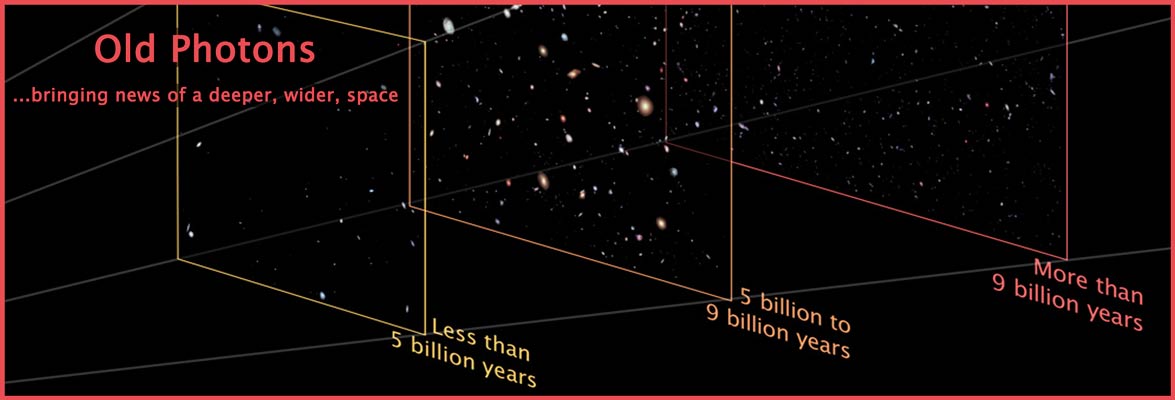I have no delusions that photons can actually experience being ‘old’ photons or new ones! It is, of course, a fact that photons do not experience aging, and that they are ‘timeless’ in the strict physical sense. Whether a photon was emitted a billion years ago or a billionth of a second ago is meaningless to the photon itself.
For some further commentary and info, see this answer and the entire post at StackExchange.
“You can pick any two points on a world line and figure out how much time elapses, by your clock, between those two points. It’s just
$t_2 – t_1$.
You can also figure out how much time elapses, by some other observer’s clock, between those two points: it’s
$\frac{t_2 – t_1}{\sqrt{1 – v^2/c^2}}$,
where $v$ is the relative velocity between you and the other observer. And you can even try to apply this calculation treating the particle itself as the observer, which lets you figure out how much time passes for the particle between those two points. It works out to
$\sqrt{(t_2 – t_1)^2 – (x_2 – x_1)^2/c^2}$.
This works just fine for a massive particle. But for a photon, no matter which two points you pick, the answer you get is zero. This is why we say that photons don’t experience time.”
